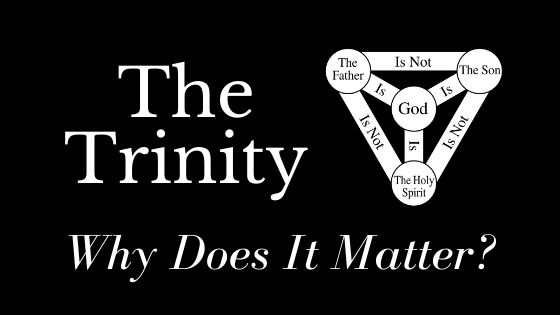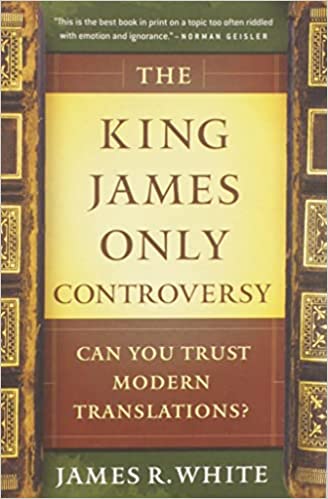The Doctrine of the Trinity is one of the most attacked in Christianity. Opponents insist that anyone who believes in a three-in-one God violates the first commandment of Moses (Exodus 20:1-3).
Needless to say, the biblical teaching of a triune God is also of the greatest importance. For many centuries, Bible scholars and theologians have made serious claims in support of the Trinity. They held to the view that the one true God exists in three distinct Persons: the Father, the Son, and the Holy Spirit.
Belief in a Triune God
Orthodox, Catholic, and Protestant branches of the church all agree that the Doctrine of the Trinity is firmly grounded in Scripture. They all agree that the teaching of a three-in-one God is consistent with the trail of Old Testament evidence of the same doctrine.
In the Old Testament, although there are strong implications that God is one, He is not a solitary Being. For instance, writers of the OT often use language that makes us think of plurality within this unity.
2,570 times in the Old Testament, the word translated “God” is Elohim which is a plural term. Except in five instances, the word refers to the one God who is the Creator, Master, and Sustainer of everything.

Sometimes, God used a plural pronoun when speaking of Himself (Genesis 1:26; Genesis 3:22). Moses, in declaring that God is one, used the same word he had employed to describe the “one flesh” relationship of a man and his wife. (See Deuteronomy 6:4 and Genesis 2:24.)
The word one in Deuteronomy 6:4 allows the idea of a plurality of Persons within the unity of the Godhead. Thus, we see that both the Old and New Testaments give us reason to believe that one can be more than one.
This may be beyond our ability to fully understand, but not a reason to reject it.
God is One, Not Three
It is clear from the Scriptures that the Father is God, the Son is God, and the Holy Spirit is God. That each has a distinct personality. Does that add up to three Gods? You may say yes if you’re working with mathematics or thinking of three separate people.
However, we are dealing with a God who is revealed in the Bible as one God, who has existed eternally as three distinct Persons. We must emphasize that God is one Being, not three. Therefore, the Father, Son, and Holy Spirit are not three separate Gods, but three separate Persons.
As distinct Persons, each functions in His own unique manner. Each Person is self-conscious and self-directing. Yet, not one of them ever acts independently of the others or in opposition to them. Their minds, wills, and emotions are in perfect unity.
The distinction between the three Persons in the Godhead was evident at the time of Christ’s baptism (Matthew 3:16-17). We see the Son coming up out of the water, the Holy Spirit descending in the form of a dove, and the Father speaking from heaven.
Jesus also affirmed the Trinity when He commanded His disciples to baptize “in the name of the Father and of the Son and of the Holy Spirit” (Matthew 28:19).
Explaining the Trinity
I have heard a lot of illustrations to explain the Trinity. Some people use egg and say, “The yolk, the white, and the shell make up the egg. See, it’s three-in-one!” Others may say that water can exist as ice, liquid, and steam. But in any form, it is just water. There’s your three-in-one!
There could be more illustrations, like a minister being a father to his children, a husband to his wife, and a pastor to his church. But I’d say this is the worst illustration. Why? It’s because this is a repetition of the hearsay that the triune God is just three manifestations of the way God works.
These analogies add little light to the subject of the Trinity. At best, they may only reflect the three-in-oneness of the Creator.
Does It Matter?
Why do many people put so much emphasis on the doctrine of the Trinity? What difference does it make whether a person believes in it or not? If a person has placed his faith in the risen Savior, isn’t that faith adequate for salvation?
The Trinity is one of the most basic and life-related teachings of the Bible; no Christian should underscore its importance.
Let us take the most well-known verse in the Bible, John 3:16.
“For God so loved the world that He gave His only begotten Son, that whoever believes in Him should not perish but have everlasting life.”
Anyone who does not believe in the Trinity would have to say that in this verse, God sent His first created being to die so that we might be saved. You may ask, “What’s the big deal with that?” If this was so, then what God did was nothing more than sending one of His creatures to save others.
On the other hand, if you believe in the Trinity, you will accept John 3:16 as a declaration of a breathtaking truth. That God loves us so much that He, in the person of the Son, came to share our pain and provide salvation at a great cost. This in effect, makes Calvary the supreme manifestation of God’s love and holiness.
The Triune God Shared Our Pain
We often put a great deal on what Jesus suffered on the cross. But what about the Father and the Holy Spirit?
Imagine the pain that a mother and father suffer as they watch their child endure pain and suffering. The relationship of the Persons within the Godhead is closer than that of family members. So, how can the Father and the Holy Spirit not be affected by the suffering of the Son?
The Godhead has shared, and still shares, the pain of His creatures. He chose to create and give His moral creatures the freedom to sin that brought pain and death into this world. Yet, He chose to share in our suffering and sorrow.
Aren’t you grateful that we serve a God who, in Christ, suffered for us? God conquered death for us; He understands our pain. Here’s more great news – what Christ did will someday bring all of God’s children into a world without suffering, tears, or death.
Final Words
We may never comprehend God fully because He’s incomprehensible. God is so different from us and so awesomely great. But He is knowable.
The God who exists eternally in three Persons has reached down to us. He has made Himself known to people during the past ages by supernatural appearances and audible speech. But then, 2,000 years ago, God made Himself known to us in the Person of Jesus Christ (Hebrews 1:2).
You and I can know God by looking to Jesus and believing in Him. In many passages in the Bible, Jesus tells us that He came to make known the Father to us. Jesus said that anyone who knows Him will know the Father as well (John 14:7). He also said that He came to do the will of the Father who sent Him (John 6:38).
Let us pay attention to the words of our Lord and set ourselves to obey Him. After all, Jesus is “the way, the truth, and the life” (John 14:6).
Disclaimer: As an Amazon Associate, I may earn a commission when you use any links on this page to make a purchase, but at no additional cost to you.
Recommended Resource:
Delighting in the Trinity: An Introduction to the Christian Faith by Michael Reeves
 Why is God love? Because God is a Trinity.
Why is God love? Because God is a Trinity.
And why can we be saved? Because God is a Trinity.
How are we able to live the Christian life? Through the Trinity.
In this lively book, we find an introduction to Christianity and the Christian life that is from start to finish rooted in our triune God―Father, Son, and Spirit.
Not only do we understand the person and work of Christ through the Trinity, but also prayer, the church, and every aspect of our faith.
With wit and clarity, Reeves draws from church history down to the present referencing a wide range of notable teachers and preachers.
Here is a rich and enjoyable portrayal of the basic beliefs of Christianity that opens up the profound and life-changing truths of our faith.


